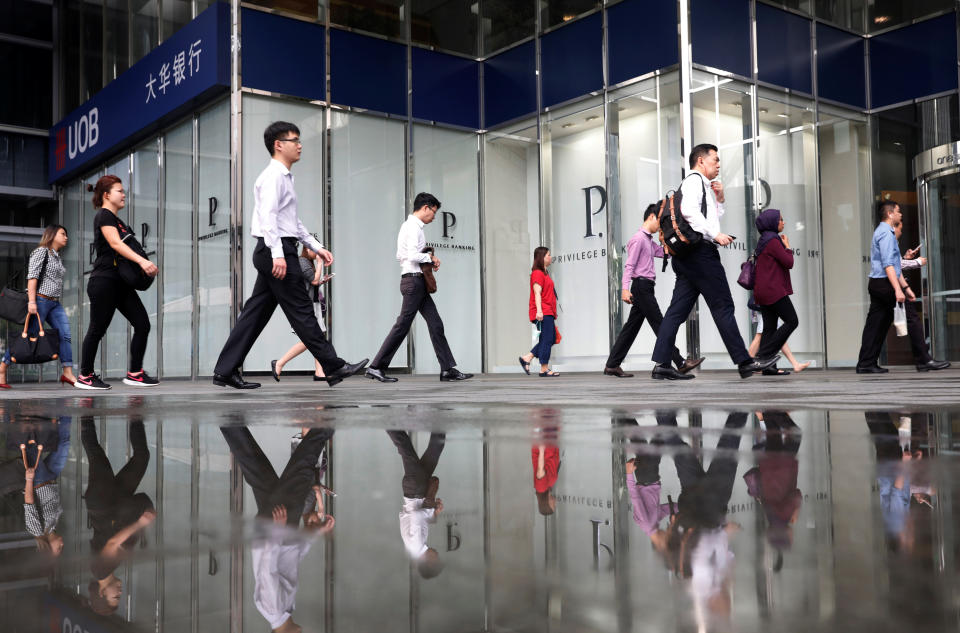A third of job roles in finance may be affected by automation: MAS-IBF study

SINGAPORE — About one-third of 121 job roles in Singapore’s financial sector will be “transformed” in the next three to five years as technology takes over a significant portion of job tasks.
That is according to the findings of a study commissioned by the Monetary Authority of Singapore (MAS) and the Institute of Banking and Finance (IBF) on the impact of automation and wider use of data analytics in Singapore’s financial services sector.
About 40 such job roles have been identified as being “highly impacted” or having the potential for displacements as the range of job tasks performed are prone to automation. These roles include bancassurance officer, branch teller, investment performance analyst, remisier, trader and claims examiner.
The 294-page report shows that automation and data analytics will mainly affect tasks within jobs rather than entire jobs. They will enhance tasks that require judgement and creativity, while replacing those that are rules-based and voluminous.
Data analytics and automation are also expected to create new and more roles in areas such as cyber security, digital security, and ditigal marketing, the report said.
“Many of the jobs we have been doing all these years have not disappeared, but the tasks we do within jobs have changed substantially because of technology,” Ravi Menon, MAS managing director and chairman of IBF, said. “And these new tasks require new skills.”
The IBF and Workforce Singapore on Tuesday launched a “Technology in Finance Immersion Programme” which aims to develop a pipeline of talent for technology jobs in the finance industry.
Successful applications will undergo structured training and on-the-job training with the seven participating financial institutions who have committed to more than 70 positions. The trainees will receive a monthly allowance of S$5,500 for the programmes which last between 18 and 24 months.
The release of the study and the launch of TFIP are intended to bolster the financial sector ongoing workforce transformation efforts, Josephine Teo, Minister for Manpower said.
In 2018, more than 20,000 individuals went through MAS/IBF supported upskilling programmes., the minister said. Financial institutions have committed to re-skill close to 4,000 employees and re-deploy them in new or expanded jobs over the next two years.
Related stories:
Slow workforce growth can’t be stopped: MAS chief Menon
Singapore set to raise retirement ages as seniors stay healthier
CPF rate for workers above 55 should be raised: PAP Seniors Group

 Yahoo Finance
Yahoo Finance 
